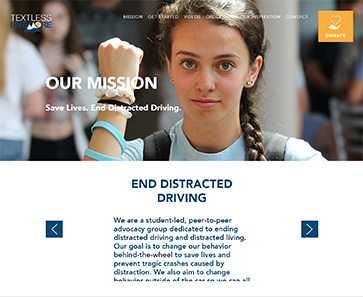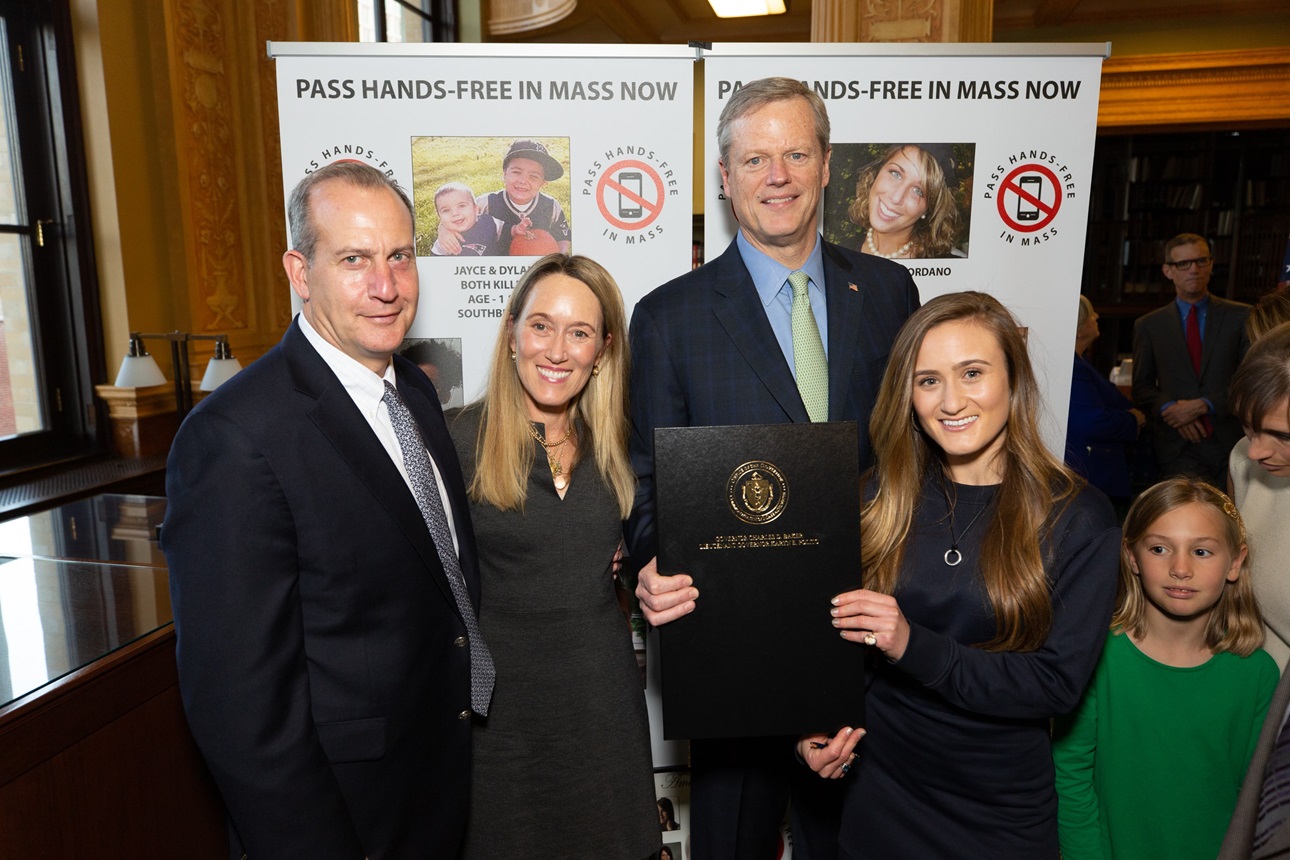Bound Together. Saving Lives.
Supporting the Merritt’s Way Fund
March 2, 2020
In this first month of Massachusetts’ new law requiring hands-free driving, this story is about the people behind that legislation: a family and group of students from Milton Academy who turned their grief into action—with the goal of saving lives.
It is estimated that each day in the United States, nine people are killed in crashes that involve a distracted driver. A shocking statistic, but devastating when it happens to your family or friend and heartbreaking when it happens to your child.
On July 2, 2013, the parents of a young woman named Merritt Levitan received a phone call telling them that their daughter had been hit by a car while she was bicycling in rural Arkansas with a large group of other young people on a cross country bike trip. Merritt had graduated just a few weeks earlier from Milton Academy and was to start Colgate in the fall. She was medivacked to Memphis, Tennessee, but died the next day from traumatic brain injuries, resulting from the crash. When police analyzed the phone records of the driver who hit Merritt, it became clear that the tragedy had been caused by someone who had been actively texting behind-the-wheel.
“When we lost Merritt, we were all in shock. We didn’t know what to do in response,” says Merritt’s mother, Anna Cheshire Levitan. “But all of us who loved her, including my husband, Rich, her sister Hunter, her brother Joseph, and her many friends at Milton Academy wanted to do something with our grief.”
The Levitans decided to open a fund at the Boston Foundation called the Merritt’s Way Fund in their daughter’s honor, but it wasn’t immediately clear what the fund would support.
Meanwhile, just a couple of months after Merritt’s death, four of her best friends at Milton Academy decided to launch TextLess Live More, a peer-to-peer awareness campaign to address digital distraction, and especially, distracted driving. They soon discovered that there was a massive, national “hands-free driving” family, all bound together through the mission of educating the country about the dangers of distracted driving. The students were joined by other students and the movement grew, with support from the Merritt’s Way Fund. Today, TextLess Live More is the country’s leading student-led, peer-to-peer movement to raise awareness about the very real perils of distracted driving. In 2017, the nonprofit became a partner of SADD the nation’s premier youth health and safety organization.
“Eventually, we realized that we had to do something beyond spreading the word,” says Anna. “You can educate and educate, but until a law is passed, nothing will dramatically change.” And so, the Levitans, especially Richard Levitan, CEO of TextLess Live More, began spending many hours at the Massachusetts State House to convince policy makers that the Commonwealth should have the kind of hands-free law that many other states already had passed.
The Levitans joined a coalition of other Massachusetts families who had lost loved ones to distracted driving as well as Massachusetts traffic safety advocacy groups to lobby lawmakers to pass this life-saving legislation. After an intense two years of holding press conferences, rallies and making the rounds on Beacon Hill, both the House and Senate passed Hands-free while driving legislation, which Governor Charlie Baker signed into law in November of 2019, making Massachusetts the 21st state in the United States to pass Hands-free. The law took effect on February 23 with a grace period during which drivers are receiving only a warning.
On March 31, the last day of the grace period, the Levitans will join their Hands-free coalition of families and advocacy groups to hold a press conference and draw even more attention to the new law.
“Now is the time,” says Anna. “Together with our family and the wonderful young people who are active in the TextLess Live More movement, we finally will see our work bear fruit.
“When you lose a child, the grief is almost unbearable, and it never goes away. But then grace happens. And, gradually, together with so many other people, we are feeling our way out of our grief and moving toward hope.”



